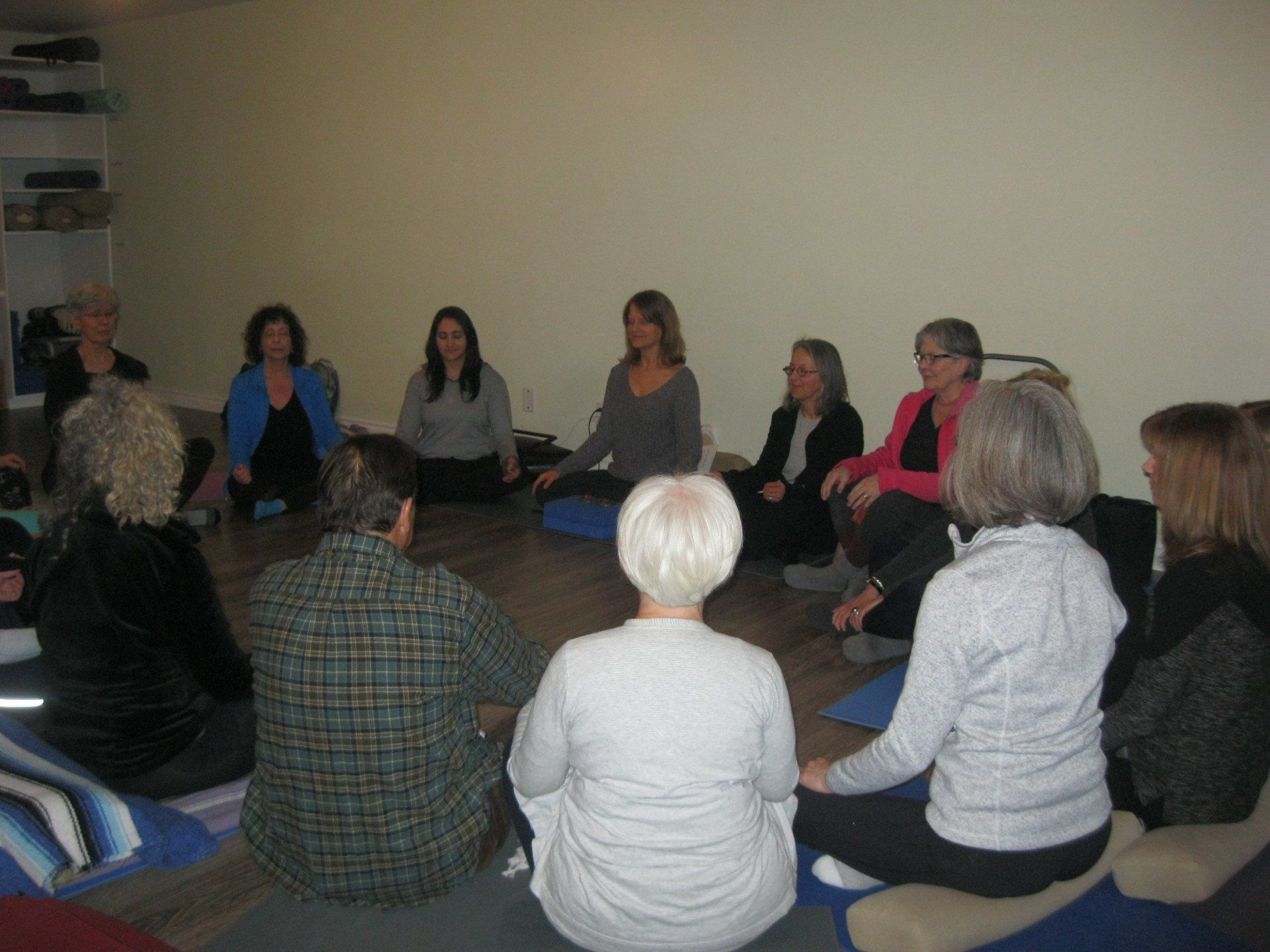
Mindfulness Meditation
What is Mindfulness?
Mindfulness refers to a waking up! Waking up to our lives in present time. It refers more specifically to a quality of attention we give to our moment to moment experience. It is an awareness of what is occurring in our bodies, our emotions, our thoughts, our reactions and interactions with the world around us however this quality of attention is very different from our usual way of paying attention and can be described in the following ways:
1. We are paying attention on purpose
2. The attention is grounded in the present moment
3. The attention is free of judgement

Our attention is habitually lost in the trance of the future or the past, while we lose touch with what is occurring in present time, the only time that is available to us. In developing our capacity to be mindful, we can interrupt our automatic reactivity, prevent stress induced consequences and make conscious choices to respond to our lives with greater clarity, effectiveness and compassion.
What is Mindfulness Meditation?
Mindfulness Meditation is a practice adapted from Buddhist Vipassana (Insight) Meditation. Mindfulness Meditation cultivates the capacity to observe the interplay of thoughts, feelings and sensations without getting lost in the stories and dramas the mind often creates. Traditionally, there is an object of attention that is focused upon and that is revisited each time the mind wanders, returning us back to the present moment.
F.A.Q.’s
How do I learn how to meditate?
Guidance and instruction are helpful at first. At Living Arts, you can learn how to practice Mindfulness Meditation in the Mindfulness Based Stress Reduction Program (MBSR), in the mindfulness based yoga programs and in private sessions. You will also receive recordings of the guided meditations that will support you in your home practice.
What are some of the benefits of Mindfulness Meditation?
Develops our capacity to truly ‘wake up’, to become more fully engaged in our lives and to consciously respond versus react on automatic pilot.
Helps to relieve anxiety and panic:
- Enhances our ability to cope with personal and work-related stress
- Lowers blood pressure
- Reduces chronic pain
- Improves sleep quality
- Alleviates gastrointestinal difficulties
- Improves immune system function
Recent research findings regarding the neuroplasticity of the brain have indicated that mindfulness meditation may be associated with structural changes in areas of the brain that are important for sensory, cognitive and emotional processing. Parts of the brain important for attention and sensory processing may also be thicker in meditation practitioners, who have also reported lower stress levels when compared to non-meditators.
How long should I sit each day?
Deciding in advance the duration of your sit can help support your practice. For many, a good time frame is between 15-45 minutes. If you sit each day, you’ll gradually experience noticeable benefits (eg. Less reactivity, more calm) and be more inclined to increase your sitting time. You can sit for less time but sit twice a day.
Do I need a special place to do meditation?
It’s helpful to find a relatively quiet place where you won’t be disturbed. It can also be helpful to use the same place each time because the association of that place has the potential to help you to settle into your meditation more quickly.
It’s hard to discipline myself to sit every day. What helps in developing a regular practice?
Giving thought to what matters to you, to what your most sincere intentions and how meditation can support you in realizing those intentions, can motivate you to sit more regularly.





